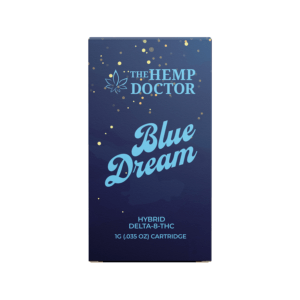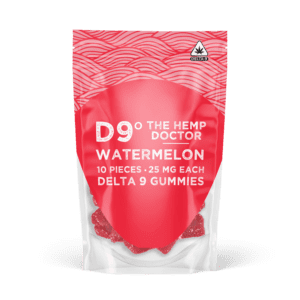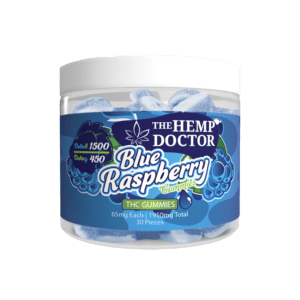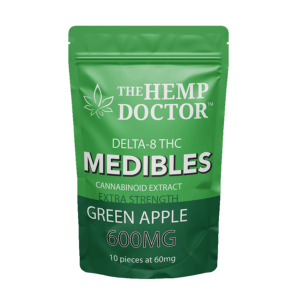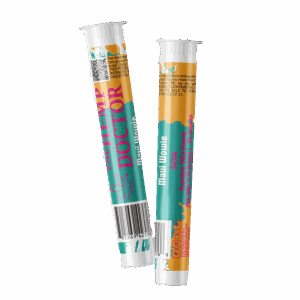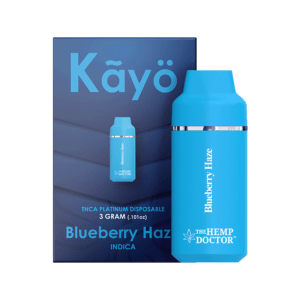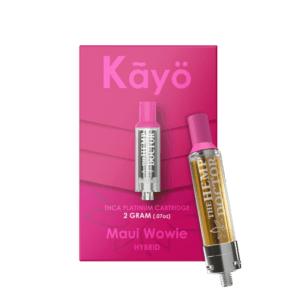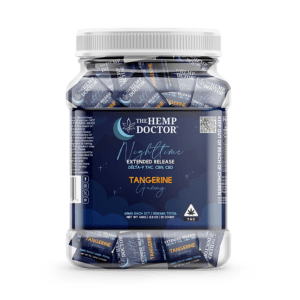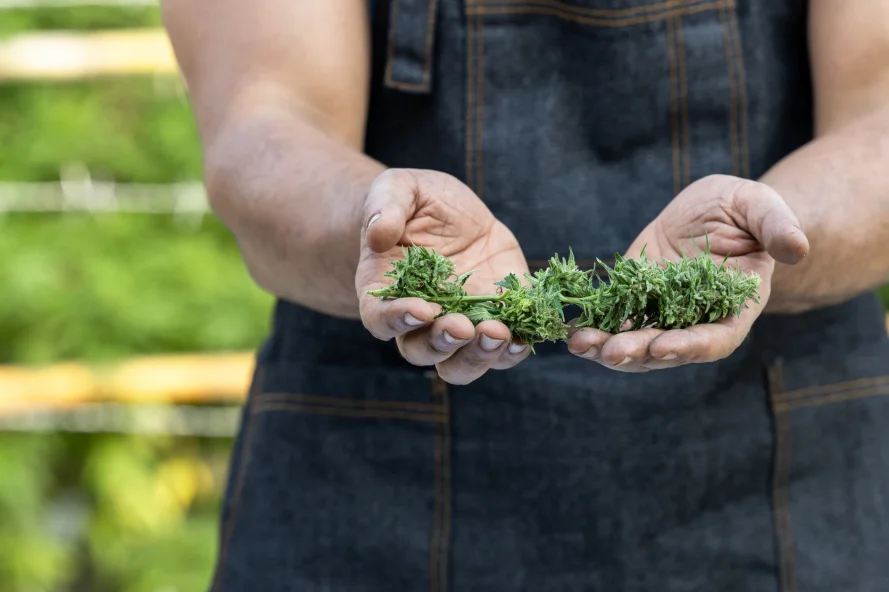
If you’ve been around cannabis long enough, you’ve probably heard the buzz about THCA. It’s showing up everywhere, on dispensary shelves, in online stores, and on industry forums, driving millions in sales each year. But what makes this compound so special, and why is it suddenly in the spotlight?
In this guide, we’ll break down why THCA is becoming a top priority for dispensaries, why retailers are adding it to their product lines, and what it means for consumers who want something fresh and exciting. Whether you’re looking to try THCA for yourself or considering selling it, you’ll find out exactly why it’s worth your attention.
THCA’s Rapid Rise in the Cannabis Market
Tetrahydrocannabinolic acid, or more simply known as THCA, is the non-psychotropic component of the cannabis plant. It is the precursor to the prominent psychoactive cannabinoid, Delta 9 THC. But why the sudden buzz, even if THCA can’t technically induce a high?
Like any disruptions in market trends, THCA has so far stood out due to several factors, including its legal status, versatility, and potential for wellness and therapeutic benefits. For many enthusiasts today, the novelty of this less-explored cannabinoid has sparked their curiosity.
In this extensive article, we will be getting into the nitty-gritty details of THCA and how it has entered the conversation in today’s cannabis circles. And if you’re a business that hasn’t offered THCA yet, here’s why your competitors have.
What Is THCA and Why Is It Different From Traditional THC?
As we mentioned in the intro, THCA is a precursor to THC and does not induce the mind-altering effects that cannabis is known for. The psychotropic kick only begins through the process of decarboxylation, or decarbing for short, which involves heat. Heat transforms THCA into THC, and only then can the user experience a high.
In a nutshell, decarboxylation (also known as decarbing) involves placing raw cannabis plant material rich in THCA under high temperatures between 220°F and 240°F (105°C and 118°C). It is typically performed through combustion or prolonged exposure in a vessel, such as an oven, for at least 30 minutes.
Now, here’s one of the main reasons why THCA has gotten so much attention as of late: the legal loophole. For one, the impact of the 2018 Farm Bill has permitted the sale and consumption of hemp, including compounds like THCA, as long as they don’t exceed the 0.3 percent THC threshold.
The DEA’s classification is another key factor here. Since THCA does not get you high, it isn’t part of the Schedule I substances that include Delta-9 THC. It is a likely reason why many states in the US have fully legalized THCA, namely California, Colorado, Oregon, and Massachusetts.
These loopholes have ultimately affected consumer perception. Since it is marketed as “legal weed,” THCA has drawn more attention and eyeballs.
The Business Case: Why Dispensaries Are Embracing THCA?
Following (or at the very least, being familiar with) market trends is essential for business growth. And if you’re in the cannabis industry, it would be foolish not to hop on the THCA train.
However, here are three highly valid reasons why many dispensaries are embracing THCA and incorporating it into their business models.
Growing Consumer Demand
There has been a steady increase in THCA demand over recent years, and the figures are actually promising. According to a report by MJBizDaily, THCA sales in 2023 accounted for 23% or $200 million out of the $2.8 billion revenue from hemp-derived products.
The report also noted that THCA was in third place, behind Delta-8 THC (which accounted for 44.2% of the market share) and hemp-derived Delta-9 THC (20.3% of the market share).
It also helps that consumers have become more educated about cannabis products, cannabinoids, as well as the known effects and potential therapeutic benefits. Equipped with more knowledge, the demand for a broader range of products has been steadily rising.
In the case of raw THCA, it is a new option for consumers, both novice and seasoned, to enjoy a cannabis product without the high. And if they do want the psychotropic kick, all they have to do is spark up to convert the THCA into THC.
Legal Loopholes & Compliance Benefits
If you’re a dispensary operator or anyone working in the cannabis industry, now is the best time to get behind the THCA hype. For one, there are several legal loopholes to take advantage of.
Thanks to the 2018 Farm Bill, lawmakers in the United States excluded hemp-derived products from the controlled substances list. As long as it does not exceed the 0.3 percent THC threshold, products are good to go.
Then, there are testing protocols established by the United States Department of Agriculture. As cannabis lawyer Heidi Urness tells MJBizDaily, testing should be conducted within 30 days before harvest. However, the USDA no longer requires testing after packaging or when the product reaches the retail level.
Urness adds that due to these guidelines, retailers in regions without cannabis markets, such as North Carolina, Tennessee, Wisconsin, and Texas, are allowed to sell federally compliant hemp despite having high THCA amounts that can later be converted to THC.
Profit Margins & Upsell Opportunities
Due to the growing demand for THCA, profit margins are also increasing. This surge is especially noticeable during major cannabis holidays, when consumers and sellers would stock up for 420.
As noted by 420 Magazine, THCA’s profit margins are potentially higher because they are not subject to tax policies imposed on cannabis, particularly Delta 9 THC. And as long as you’re selling fast-acting THCA edibles, customers may pay 31% higher than the original price.
Take THCA wholesale carts, for example. Most of these products are marketed as “premium” quality, and this is evident in their sleek branding. Consumers perceive them as “high-end” variants, making them more inclined to spend money for a supposedly elevated experience.
And because of its versatility, where users can enjoy raw THCA’s non-psychotropic benefits or its decarbed version that offers a strong psychoactive effect, THCA has appealed to both recreational and medicinal users, seasoned and novice.
Through its reputation alone, cannabis entrepreneurs can use THCA as a valuable gateway to consumer retention. By building trust and providing personal recommendations, these products become much more marketable and ultimately much more profitable.
If you’re a dispensary owner, upselling THCA would be a wise and potentially lucrative business move.
Challenges & Considerations for Dispensaries
There may be exploitable loopholes when it comes to dealing with THCA, both as a seller and a consumer. However, it would be careless to ignore the associated challenges and risks.
For one, future regulations may tighten, especially when lawmakers begin to focus on THCA, much like they do with THC. It is important to note that the USDA counts total THC when determining if a product is compliant with regulations. This includes its precursor, THCA.
Once the government strictly enforces these policies and creates more definitive regulations surrounding THCA, there may be fewer opportunities to take advantage of. And if you’re a dispensary owner, it’s best to educate yourself on such policies to be prepared when they take effect.
Then, there are supply chain concerns. As a retailer, part of your obligation is to ensure products are consistently of high quality and that you’re a reliable and reputable source. You must ensure that suppliers not only deliver top-tier THCA but also comply with the complex legal requirements.
This is where a thorough vetting process comes in. When you’re partnering with a potential long-term supplier, do your due diligence, and if possible, leave no stone unturned. Most importantly, prioritize compliance and quality control over making a profit.
Customer education is another key factor to consider here. Many of your consumers are likely not informed enough about THCA, its effects, the legalities, as well as product safety and quality.
It all comes down to effective marketing campaigns. Part of it is clarifying old stereotypes and misconceptions, one of which is that all cannabis products can get you high. THCA, in particular, is non-psychotropic, unless combusted or heated and purposely converted into THC.
Creating content that explains nitty-gritty details like terpene profiles and lesser-known cannabinoids like CBG. These pieces of content can also break down scientific explanations into more understandable and digestible pieces of information for easier comprehension.
What This Means for Wholesalers and Retail Partners
All challenges and risks aside, selling THCA is still worth looking into. Given the promising developments in the cannabis industry, along with the continuous acceptance for non-therapeutic use worldwide, there are numerous opportunities in dealing with this cannabinoid alone.
Adding THCA to your portfolio
If you’re a B2B buyer, for example, adding THCA to your portfolio could be a wise business decision due to the increasing consumer interest in it. That gives you a strong potential for significant market growth.
By including THCA, you’re not only expanding your product offerings but also reaping the benefits of current industry innovations.
And given its reputation for plausible therapeutic benefits, the hype and curiosity surrounding THCA are only expected to grow. As a B2B buyer, this is something worth looking into.
Building a product line around THCA
As a cannabis or hemp brand owner, you would always want to expand your customer base and attract new buyers beyond your existing loyal clientele. One way to achieve this is to develop a product line centered on THCA and capitalize on the hype surrounding it.
You can offer typical products, such as THCA pre-rolls and edibles like gummies. However, you can also explore other new-school options, such as live rosin, bubble hash, and diamonds —a type of concentrate with high potency.
By building a product line around THCA, you’re not only expanding your customer base; you’re also tapping into a new market. At the same time, you’re also establishing a reputation as a retailer who can adapt to current trends, which is a significant advantage in the fast-paced cannabis industry.
Tips for choosing the right THCA supplier
Last but certainly not least, you must choose the right THCA supplier. But who exactly fits the definition? Here are some questions you may want to ask:
Do they have lab testing certificates?
This must be a top priority when choosing a THCA supplier. Lab testing certificates provide essential information, including cannabinoid content, terpene profiles, and, most importantly, the absence of possible contaminants such as pesticides in flowers.
Lab testing certificates also ensure that products are legally compliant, helping to avoid potential problems down the line. If you’re supplier cannot provide you with a lab testing certificate, you may be better off shopping around for another one.
Are their products consistent in terms of quality?
Consumers – especially your regulars – would want consistent products each time they visit your shop. The moment you become unpredictable with the quality of your THCA, you will begin to lose their trust.
As a dispensary owner, find a supplier with a proven track record of maintaining consistency in its product offerings. This is especially true of their ability to source in bulk.
Do they offer a diverse variety of strains?
This particularly applies to THCA flowers. Variety is what attracts new customers and keeps the old ones loyal. And if you’re a dispensary that lacks variety, you will likely be left behind by the competition.
That said, you must find a supplier that offers a broader range of THCA strains, including the exotic ones that are not yet very popular. If you find one that supplies strains that cater to different needs and preferences, you’re golden.
Are they offering competitive rates?
When we refer to competitive rates, we mean bulk discounts or special pricing for recurring orders. This helps maximize your profit margins, enabling you to grow your business further.
Of course, the goal isn’t about making money alone. However, you have to ensure that your bottom line is taken care of.
Are they reliable in terms of shipping and delivery?
The last thing you want is the headache of shipping and delivery mishaps. The moment your supplier either carelessly handles your products or fails to deliver on time, you must rethink your business relationship with them.
If possible, work with a supplier with a reliable track record for efficient shipping, clear timelines, and proper packaging.
THCA As A Competitive Edge
Let’s face it: THCA is shaping the cannabis retail landscape as we know it. It’s an excellent option for those who don’t want the high, but its potency when converted to THC also appeals to those who want the mind-altering kick. Because of its appeal and novelty, it gives cannabis entrepreneurs a massive earning potential down the line.
So if you’re a dispensary owner or wholesaler, now is the best time to explore THCA partnerships. Don’t miss a possibly lucrative opportunity.

